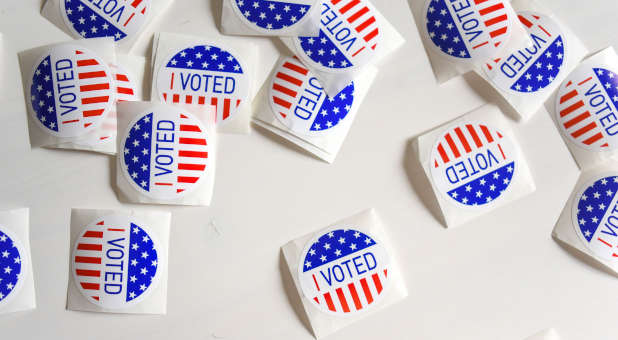America’s Ongoing Battle for Election Integrity
My Faith Votes recently had the opportunity to speak with Hans von Spakovsky to discuss the “For the People Act” (H.R.1.) and the impact it continues to have on election integrity. even though the bill failed to reach the 60-vote threshold needed to overcome a Republican filibuster in the evenly divided Senate.
Hans, a senior legal fellow at the Heritage Foundation, is an authority on a wide range of topics including civil rights, civil justice and the First Amendment.
You can watch the full conversation with Hans von Spakovsky here.
MFV: While the bill in question is called the “For the People Act” (H.R.1.), it appears to actually be a federalization of elections. Would this ultimately be good for America?
HS: No, this bill is not at all good. In my 20 years in Washington, this is the worst election bill I’ve seen in Congress.
There are several parts to it. First of all, the election administration provisions are a complete federalization of the process. They are intended to get rid of every safety protocol that states have in the election process.
Then, the second section proposes changes to federal campaign finance laws that are intended to essentially restrict the First Amendment activities of individuals and groups. There are also assorted provisions included, like a public funding program for people running for Congress. This upsets me because it means that your tax money might get used to subsidize a political campaign for candidates you would never vote for.
MFV: This bill sounded helpful in some situations where, for instance, a voter who is immobile could have someone else assist them. But what does this look like in practice, and where are the opportunities for voter fraud?
HS: Getting a ballot delivered is not a problem. In every state, you can mail your ballot back, a member of your family can deliver it and, in many states, a designated caregiver can deliver it as well. That’s not what liberals want though. They want third-party strangers to show up at your door and be able to deliver your ballot, and that’s problematic.
The danger of absentee ballots is they are the only kind of ballot that is filled out outside of the supervision of election officials and poll watchers. That’s why you don’t want to give people who have a stake in the outcome of the election the ability to go to people’s doors and pick up their ballots.
MFV: Joe Manchin was the only Democratic senator who did not sign this bill. He recently submitted potential changes to the bill, and they don’t all sound like a bad idea. For instance, he has proposed making Election Day a public holiday to give people an opportunity to have time off from work to vote. What do you think of that kind of measure?
HS: I don’t have a problem with making Election Day a national holiday, but those who think that will somehow increase voter turnout are likely mistaken. If you look at surveys done by the U.S. Census Bureau after elections, the number of people who say they didn’t vote because they couldn’t get to a polling location is a tiny fraction. In almost every state, you have weeks in which you can vote with an absentee ballot. The majority of states now have early voting weeks before Election Day.
On the other hand, Manchin is proposing automatic voter registration, and that’s not a good idea. This would mean that whenever you go to a state agency, you are automatically registered without being asked. The problem with that is it’s going to lead to multiple registrations for the same person in the same or different states and potentially the registration of non-citizens or felons who don’t have the right to vote.
MFV: Let’s talk about the “John Lewis Voting Rights Advancement Act” (S.4263). This bill also addresses voting, but it comes at the situation from a different angle than the “For The People Act.” We discussed federal takeover of elections previously, and this bill would keep lawmaking in the states. However, it still is essentially a federal takeover because of this concept known as “preclearance.” Can you explain this further?
HS: H.R.4. is basically the backup bill the Democrats have come up with after failing to pass H.R.1. In essence, what it would do is give the federal bureaucracy lawyers within the civil rights division of the Justice Department veto authority over changes in voting laws and rules by the state legislators—this is what’s called preclearance.
Requiring preclearance means that a law passed by a state legislature, like a voter ID law, would not become effective unless it has been submitted to the U.S. Justice Department to be precleared. In essence, the bill gives federal bureaucrats veto power over the state lawmakers and the voters of a particular state. It’s unprecedented, and it’s a very bad idea.
To date, the “For the People Act” and the “John Lewis Voting Rights Advancement Act” pose one of the most severe threats to election integrity and our democratic process. They would cost people of all faiths, backgrounds and party affiliations their rights to free and credible elections.
At My Faith Votes, we encourage you to stand for both high voter participation and election integrity. We have simple tools to help you protect elections at the local, state and federal levels of government.
Visit Election Integrity Now to learn more. {eoa}
Read articles like this one and other Spirit-led content in our new platform, CHARISMA PLUS.












